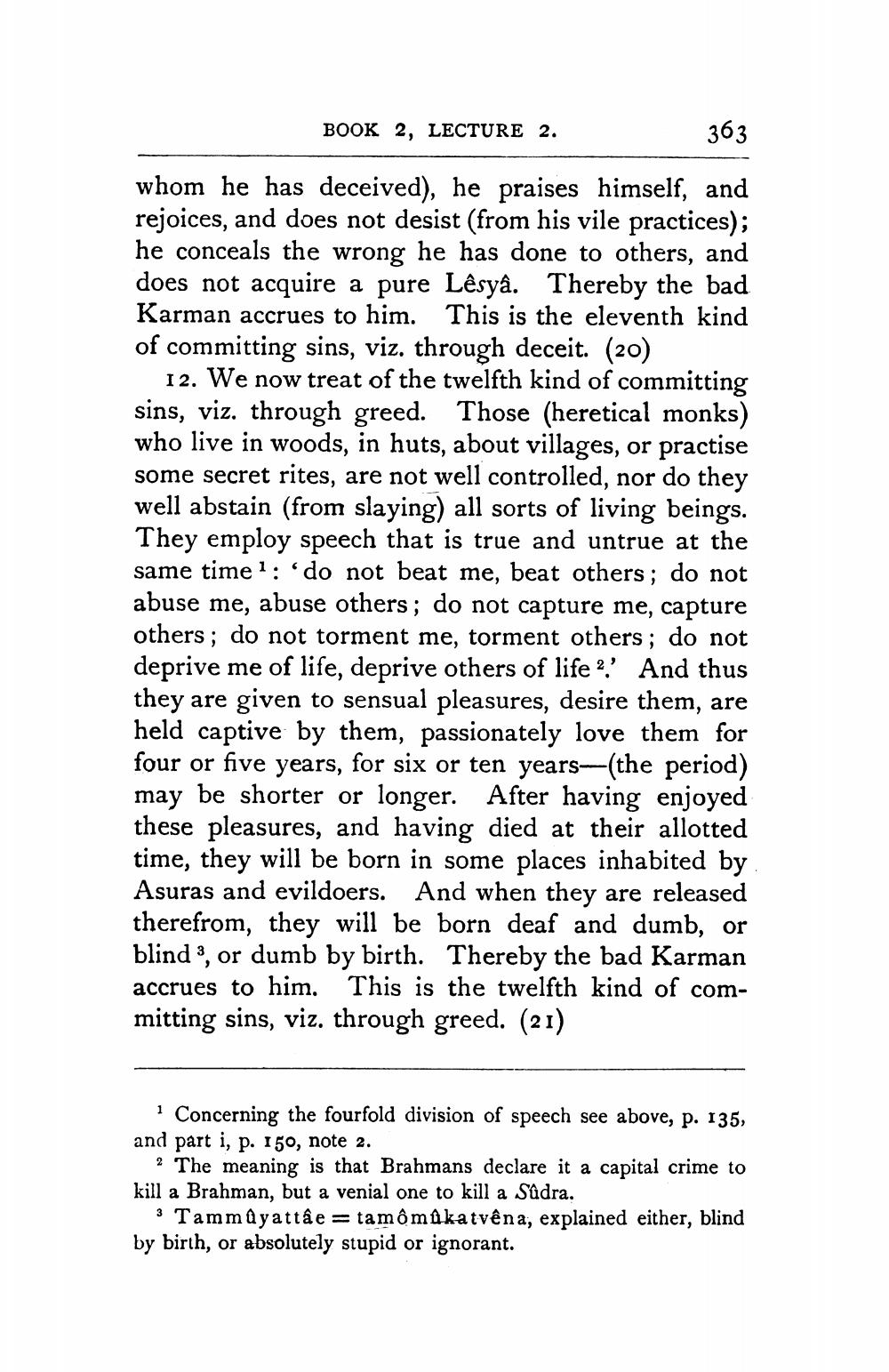________________
363
whom he has deceived), he praises himself, and rejoices, and does not desist (from his vile practices); he conceals the wrong he has done to others, and does not acquire a pure Lêsyâ. Thereby the bad Karman accrues to him. This is the eleventh kind of committing sins, viz. through deceit. (20)
12. We now treat of the twelfth kind of committing sins, viz. through greed. Those (heretical monks) who live in woods, in huts, about villages, or practise some secret rites, are not well controlled, nor do they well abstain (from slaying) all sorts of living beings. They employ speech that is true and untrue at the same time: 'do not beat me, beat others; do not abuse me, abuse others; do not capture me, capture others; do not torment me, torment others; do not deprive me of life, deprive others of life 2 And thus they are given to sensual pleasures, desire them, are held captive by them, passionately love them for four or five years, for six or ten years-(the period) may be shorter or longer. After having enjoyed these pleasures, and having died at their allotted time, they will be born in some places inhabited by Asuras and evildoers. And when they are released therefrom, they will be born deaf and dumb, or blind 3, or dumb by birth. Thereby the bad Karman accrues to him. This is the twelfth kind of committing sins, viz. through greed. (21)
BOOK 2, LECTURE 2.
1 Concerning the fourfold division of speech see above, p. 135, and part i, p. 150, note 2.
2 The meaning is that Brahmans declare it a capital crime to kill a Brahman, but a venial one to kill a Sûdra.
3 Tammûyattâe tamômûkatvêna, explained either, blind by birth, or absolutely stupid or ignorant.




